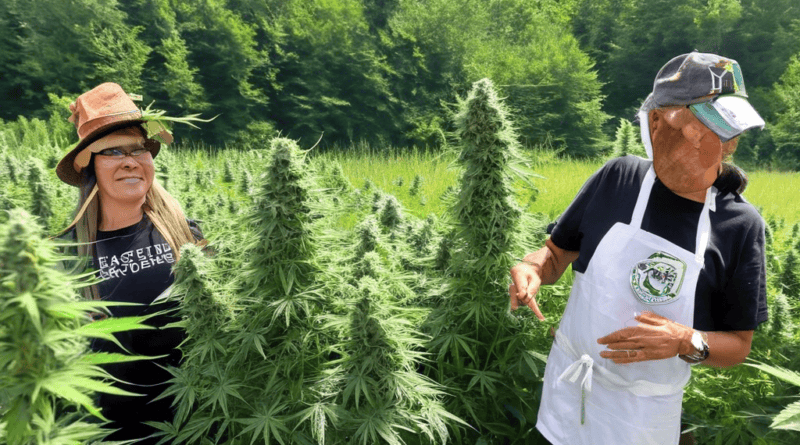Eastern Band of Cherokee Indians Launches Historic Adult-Use Cannabis Sales in North Carolina
Significance of the Commencement
The Eastern Band of Cherokee Indians (EBCI) marked a historic milestone by initiating adult-use cannabis sales, making a bold move despite marijuana remaining illegal throughout North Carolina. The Great Smoky Cannabis Co., an establishment located in Cherokee, North Carolina, and operated by Qualla Enterprises, LLC, is at the center of this groundbreaking initiative. This venture signifies a major step forward for the tribe, illustrating its pioneering spirit and autonomy.
This initiative is not only a significant cultural shift but also an economic one, as it aims to generate substantial revenue for the tribe. The approved adult-use cannabis sales are set to counter potential financial shortfalls resulting from increased gaming competition in the region. The tribe utilizes its sovereign authority to carve out a unique economic path that sets precedent and acts as a case study in tribal-industry governance.
Inception and Expansion Plans
The inception of this initiative began on July 4, 2024, with sales initially restricted to enrolled EBCI tribal members and members of other federally recognized tribes. This careful, phased rollout reflects a strategic approach to gauge internal impacts and refine operational processes before a broader launch. By August 2024, the sales are scheduled to expand to include non-members, broadening the market base and further driving potential revenue.
Prior to this, on April 20, 2024, the Great Smoky Cannabis Co. commenced medical cannabis sales, servicing adult customers with tribe-issued medical cannabis cards or out-of-state approved marijuana cards. This early start in the medical cannabis sector provided valuable operational insights and experience, setting the stage for a smoother transition into adult-use sales.
Regulatory Framework and Legislative Approval
The path to legalization was driven by community and legislative support. In the 2023 General Election held on September 7, 2023, EBCI voters demonstrated robust support by approving the legalization of adult-use cannabis, with a significant majority of 2,464 votes in favor and 1,057 against. This democratic decision underscored the community’s progressive stance on cannabis regulation.
Following voter approval, the EBCI Tribal Council passed Ordinance No. 63 on June 6, 2024, which formally legalized adult-use cannabis on EBCI lands. The ordinance received substantial support from the council, with nine representatives voting in favor and only two dissenting. This legislative approval was crucial in establishing a robust regulatory framework that governs the adult-use cannabis market on the Qualla Boundary, including provisions that decriminalize cannabis use and update tribal laws accordingly.
The Economic and Cultural Impact
The launch of adult-use cannabis sales is a pivotal economic initiative expected to generate substantial revenue for the Eastern Band of Cherokee Indians. By tapping into this burgeoning market, the tribe anticipates a significant financial boost that will help mitigate the economic impact of rising competition in the gaming sector. This diversified income stream underscores the tribe’s strategic vision and entrepreneurial spirit.
Moreover, the initiative represents a significant cultural shift. It showcases the tribe’s ability to exercise its sovereign authority effectively, making decisions that reflect the will of its members and addressing contemporary economic challenges. By leading in this area, the EBCI sets a powerful example for other tribes and regions considering similar moves.
Sovereign Authority and Future Prospects
As a sovereign nation, the Eastern Band of Cherokee Indians holds the authority to establish and regulate cannabis sales regardless of North Carolina’s state laws prohibiting its use. This sovereign status empowers the tribe to take assertive actions that align with its community’s interests and economic goals. The ability to self-regulate in areas such as cannabis sales is a profound demonstration of the tribe’s autonomy.
Looking ahead, the successful implementation and expansion of adult-use cannabis sales could pave the way for other tribes and regions to explore similar initiatives. The EBCI’s experience will likely serve as a vital case study and reference point in the evolving landscape of cannabis legalization and economic diversification for indigenous communities.

